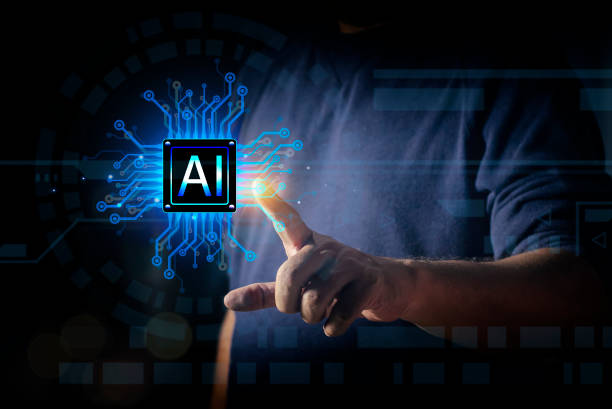Introduction to Artificial Intelligence and Fundamental Changes in the Job Market
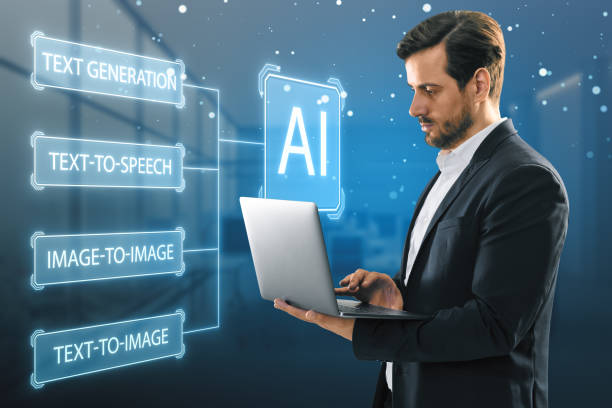
In today’s world, #Artificial_Intelligence is no longer a science fiction concept; rather, it’s a powerful and transformative force rapidly shaping our #Career_Future.
The advent of AI into various aspects of life, from production and services to medicine and education, has brought about fundamental changes in the job market.
This technology not only transforms existing jobs but also creates entirely new ones that require novel skills and knowledge.
A precise understanding of the future of AI employment is vital for any individual and organization wishing to remain competitive in this new era.
Predictions indicate that no sector of the economy will be immune to the impacts of AI, and these changes bring both opportunities and challenges.
Many routine and repetitive tasks will be #automated by AI, but conversely, the demand for jobs requiring creativity, critical thinking, complex problem-solving, and emotional intelligence will increase.
This massive transformation requires a comprehensive and continuous educational approach to prepare the workforce for the future of AI employment.
Does your current website reflect your brand’s credibility as it should? Or does it drive away potential customers?
Rasaweb, with years of experience in designing professional corporate websites, is your comprehensive solution.
✅ A modern, beautiful website aligned with your brand identity
✅ Significant increase in lead and new customer acquisition
⚡ Contact Rasaweb now for a free consultation on corporate website design!
Jobs at Risk: Which Professions Are Most Affected?
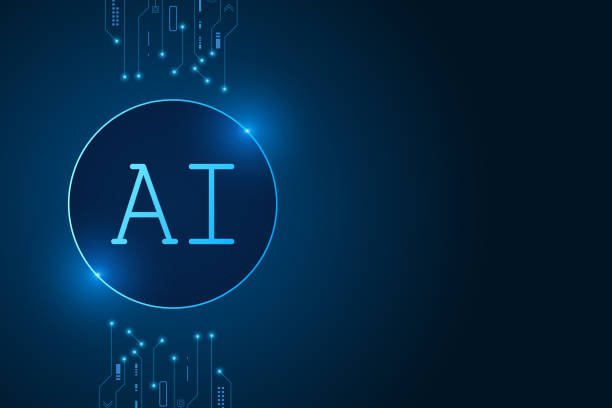
With significant advancements in AI, many jobs involving repetitive, predictable, and data-driven tasks are at risk of automation.
#Repetitive_Jobs such as archiving clerks, cashiers, production line operators, and even some tasks in accounting and customer service, can easily be performed by AI algorithms and robotics.
This doesn’t mean these jobs will completely disappear; rather, their form will change, requiring new skills to work alongside machines.
For example, a cashier might transform into a customer experience specialist focusing on human interactions.
Various analyses indicate that industries such as transportation, manufacturing, and financial services will be most affected by automation.
But this is just one side of the coin; alongside these changes, new job opportunities are emerging that require interaction with and development of AI.
Understanding these changes and preparing for them is key to success in the future of AI employment.
This transition period can be challenging, but with proper planning and investment in education, these threats can be turned into opportunities.
New AI Jobs: Emerging Opportunities in the Age of Artificial Intelligence

As some jobs face the risk of automation, AI is creating a new generation of job opportunities that did not exist before.
These jobs not only require a deep understanding of AI technology but also demand #creativity, #critical_thinking, and interpersonal skills.
Machine Learning Engineer, Data Mining Specialist, AI User Experience Designer, AI Ethics Specialist, and Robotics Developer are just a few examples of these emerging jobs.
These roles typically focus on the design, implementation, management, and improvement of AI systems.
For example, a Machine Learning Engineer is responsible for developing and training algorithms that can learn from data and make decisions, while an AI Ethics Specialist oversees the social and ethical aspects of using this technology.
These developments show that the future of AI employment is not merely about replacing human labor, but rather about increasing productivity and creating new opportunities for human-machine collaboration.
These job opportunities require a combination of technical knowledge and soft skills.
Table 1: Emerging Jobs in the Age of Artificial Intelligence
| Job Title | Main Responsibilities | Key Skills |
|---|---|---|
| Machine Learning Engineer | Designing, implementing, and deploying ML models | Python, R, Statistics, Linear Algebra |
| Data Scientist | Data analysis, insight extraction, prediction | SQL, Python, Statistics, Visualization |
| AI Ethics Specialist | Ensuring responsible and ethical use of AI | Philosophy, Law, Computer Science, Critical Thinking |
| AI User Experience Designer | Designing intuitive user interfaces for AI systems | UX/UI, User Psychology, AI |
Required Skills for the Future: What We Need for Survival and Growth
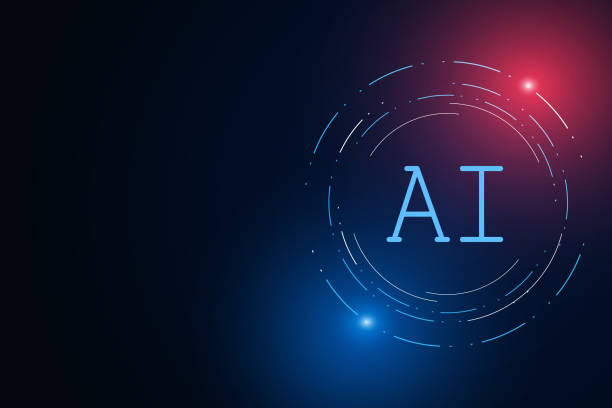
In the era of #Digital_Transformation and relentless advancements in AI, acquiring and developing new skills is crucial for survival and progress in the #Job_Market.
These skills not only include technical knowledge but also human and soft abilities that machines cannot imitate.
Skills such as #Complex_Problem_Solving, critical thinking, creativity, innovation, emotional intelligence, collaboration, and leadership are becoming increasingly valuable.
Furthermore, the ability to work with data, understand the fundamentals of AI, and digital literacy will be essential for everyone in every job.
Continuous learning and #reskilling are not just an option but a necessity to keep pace with changes in the future of AI employment.
Organizations must also invest in employee skill development programs to ensure their workforce is prepared to face new challenges and leverage new opportunities.
This combination of hard and soft skills equips individuals for a successful collaboration with AI.
Don’t have a corporate website yet and missing out on online opportunities? With professional corporate website design by Rasaweb,
✅ Double your business’s credibility
✅ Attract new customers
⚡ Free consultation for your corporate website!
The Role of Education and Reskilling: Preparing for the Future of AI Employment
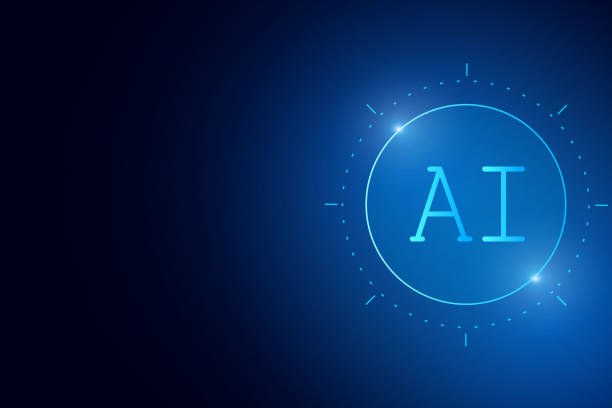
Workforce education and reskilling are among the most crucial pillars for preparing for the future of AI employment.
Given the rapid pace of technological change, skills that are relevant today may become obsolete tomorrow.
Therefore, investment in #Lifelong_Learning and #Reskilling becomes critically important.
This includes specialized courses in AI, data science, programming, as well as courses for developing soft skills such as creative thinking, problem-solving, and active learning.
Universities, educational institutions, and even companies must update their training programs to align with the needs of the #Future_Job_Market.
Governments can also play a crucial role by providing incentives and financial support for reskilling programs.
The goal is for the current workforce to acquire the necessary skills to collaborate with AI systems and to be prepared for the new roles created by this technology.
This investment in education not only helps individuals advance in their careers but also significantly contributes to the economic stability of society in the face of major changes.
Preparing for the future of AI employment requires a responsive and dynamic educational ecosystem.
Ethics and Responsibility: Questionable Aspects in Artificial Intelligence
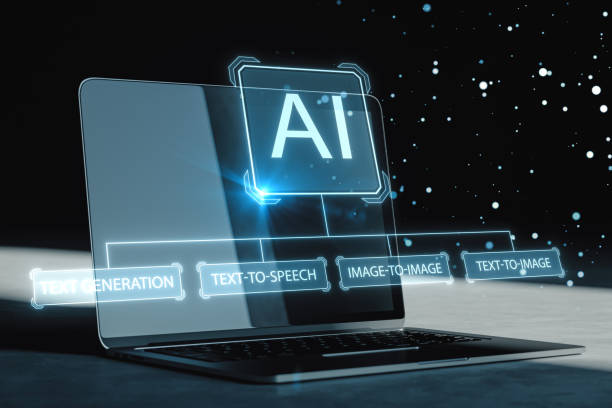
The advancement of AI is not limited to technological development; it also raises significant #Questionable_Aspects (issues) regarding ethics and responsibility.
These aspects include topics such as #Algorithmic_Bias, data privacy, cybersecurity, and the impact of AI on employment and wealth distribution.
Algorithmic decisions can be unfair or discriminatory if the data they were trained on contains biases.
Therefore, the development and deployment of AI must be accompanied by strong ethical principles and regulatory frameworks.
AI ethics specialists, legal professionals, and policymakers play a vital role in shaping laws and standards that ensure the responsible use of this technology.
Discussing these issues and finding appropriate solutions for them is essential for shaping a fair and sustainable future of AI employment.
Raising public awareness about these challenges and encouraging critical thinking about the social implications of AI are also of high importance.
This part of the analysis reminds us that technological progress must always be accompanied by social responsibility.
AI and Entrepreneurship: New Opportunities for Business Creation
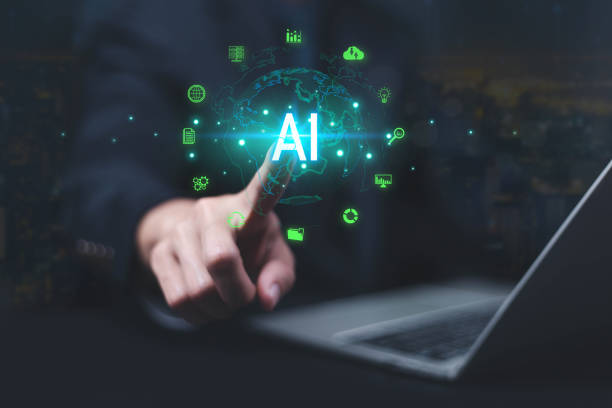
AI not only transforms existing jobs but also creates countless #New_Entrepreneurial_Opportunities.
AI-powered startups are flourishing in areas such as #Digital_Health, personalized education, Fintech, and #Smart_Cities.
Entrepreneurs can leverage AI capabilities to solve complex problems, offer innovative services, and create new business models.
For example, the development of intelligent chatbots for customer service, data analytics platforms for business decision-making, or process automation tools are all examples of AI-driven entrepreneurial opportunities.
This approach not only helps create new jobs but also leads to economic growth and increased productivity.
Supportive ecosystems for startups, including accelerators and venture capitalists, play an important role in facilitating this transformation.
The future of AI employment is highly intertwined with its capacity to inspire a new generation of entrepreneurs who can bring innovation on a large scale.
This creative approach reveals AI’s potential in creating economic and social values.
Table 2: Useful AI Tools for Entrepreneurs
| Tool Category | Example/Application | Key Benefits for Entrepreneur |
|---|---|---|
| Chatbots and Virtual Assistants | Customer support, FAQ answering | Cost reduction, 24/7 responsiveness, improved customer experience |
| Data Analysis and BI Tools | Pattern identification, market trend prediction | Data-driven decision-making, strategy optimization |
| Content Creation Platforms (AI-powered content generation) | Generating ad copy, content ideation | Increased content production speed, more creativity |
| Marketing Automation Tools | Precise campaign targeting, message personalization | Higher ROI, increased marketing efficiency |
Challenges and Opportunities: A Deeper Look at Future Developments
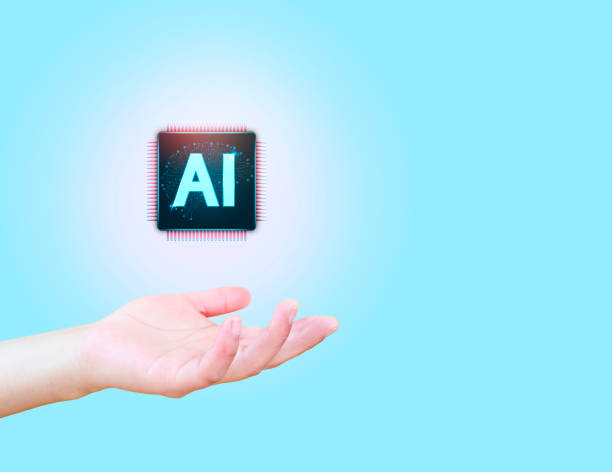
The future of AI employment, like any other major transformation, brings a set of #Challenges and #Opportunities.
Key challenges include concerns about job displacement, the need for extensive workforce retraining, and the creation of new economic inequalities.
Additionally, managing the ethical and social aspects of AI, such as privacy protection and bias prevention, requires serious attention.
But alongside these challenges, there are also unparalleled opportunities.
AI can help increase productivity, improve quality of life, and solve some of the world’s biggest problems, such as climate change and diseases.
The creation of new jobs, the enhancement of human skills, and the possibility of more flexible work are among the potential benefits.
#Career_Change and #Adaptability have become keywords for success in this era.
It should be noted that the future of AI employment is not a fixed destination but a dynamic path requiring continuous adaptation.
A comprehensive look at both sides of the coin prepares us for better planning and successful navigation through this period.
Did you know that customers’ first impression of your company is your website? With a powerful corporate website from Rasaweb, multiply your business’s credibility!
✅ Custom and eye-catching design tailored to your brand
✅ Improved user experience and increased customer acquisition
⚡ Get a free consultation!
Policymaking and Regulation: The Role of Governments and Organizations in Shaping the Future
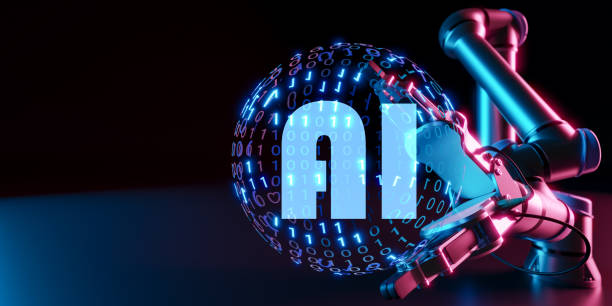
To properly manage the #Impacts_of_AI on the #Future_of_Employment, the role of governments, international organizations, and regulatory bodies is crucial.
These entities can contribute to shaping a fair job market by enacting appropriate laws and regulations, including those related to data protection, AI ethics, and supporting workers during the transition.
Investing in education and the necessary infrastructure for skill development, providing financial assistance to workers who lose their jobs, and encouraging responsible innovation are other key measures.
Furthermore, fostering collaboration among the public, private, and academic sectors for the development and implementation of national AI strategies can help maximize the benefits of this technology and minimize its challenges.
#Forward-looking_Policymaking and #Dynamic_Regulation are key factors in ensuring that the future of AI employment benefits all segments of society, not just a select few.
Without these active interventions, there is a risk of increased inequality and social instability.
Human-AI Collaboration: Coexistence for Higher Productivity
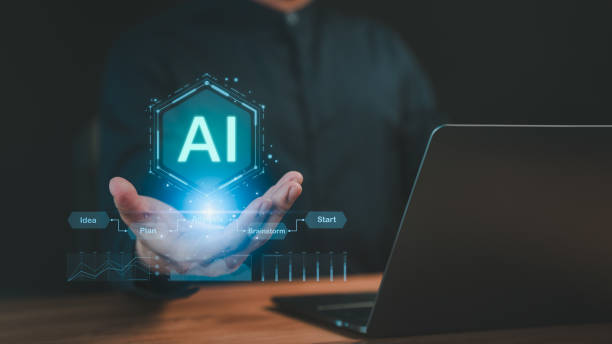
One of the most important aspects of #AI_Employment_Future is the concept of human-AI collaboration.
Instead of a view that sees AI merely as a replacement for humans, the new approach emphasizes enhancing human capabilities through this technology.
AI can handle repetitive tasks, analyze vast amounts of data, and provide precise information, while humans focus on skills such as #creativity, #strategic_thinking, complex problem-solving, and #social_interactions.
This coexistence leads to increased productivity, innovation, and decision-making quality.
For example, in medicine, AI can help in faster disease diagnosis, while doctors focus on patient communication and complex treatment decisions.
This new paradigm requires the design of AI systems with intuitive user interfaces and high interactive capabilities.
Companies and organizations should promote a work culture where employees, instead of competing with AI, consider it a powerful tool for increasing their productivity.
This positive outlook on the future of AI employment reveals its true potential for improving work life.
Frequently Asked Questions
| Question | Answer |
|---|---|
| What impact will AI have on the future job market? | AI will automate repetitive jobs, but simultaneously create new and more complex jobs in areas such as AI system development, maintenance, and training. |
| Which jobs are most at risk of being replaced by AI? | Jobs involving repetitive, rule-based tasks with low need for creativity or emotional intelligence, such as some manufacturing jobs, data entry, and simple customer service, are most at risk. |
| What skills are essential for success in the future job market with AI? | Skills such as critical thinking, complex problem-solving, creativity, emotional intelligence, data literacy, the ability to work with AI, and lifelong learning are of high importance. |
| Will AI cause widespread unemployment? | Some jobs will be lost, but history has shown that new technologies, instead of causing widespread unemployment, reshape the job market and create new jobs. The need for adaptation and retraining is crucial. |
| What new job opportunities emerge with the advent of AI? | Jobs such as Machine Learning Engineer, Data Scientist, AI Ethicist, Human-AI Interaction Designer, and Digital Transformation Consultant are among the new opportunities. |
| What is the role of education in preparing for the future of AI employment? | Education must focus on developing soft skills, computational thinking, digital literacy, and the ability for continuous learning to prepare individuals for future changes. |
| How can I prepare myself for job market changes driven by AI? | You can prepare yourself by learning new skills related to AI and data, strengthening soft skills, developing critical and creative thinking, and embracing lifelong learning. |
| Will AI ethics become an important job field? | Yes, given increasing concerns about biases, privacy, and automated AI decisions, the role of AI ethics specialists will become crucial to ensure its responsible development. |
| What is the importance of human-AI collaboration in the future of employment? | Human-AI collaboration, rather than competition, shapes the future of the job market. AI can be a tool to increase productivity and allow humans to focus on more complex and creative tasks. |
| Which industries will be most affected by AI? | Almost all industries will be affected, but sectors such as healthcare, finance, transportation, manufacturing, education, and customer service are pioneers in adopting and transforming through AI. |
And other services of Rasa Web Advertising Agency in the field of advertising
Smart Advertising Campaign: Revolutionize user interaction with custom programming.
Smart Marketing Automation: An effective tool for improving SEO ranking with precise audience targeting.
Smart Advertising Campaign: Designed for businesses seeking to attract customers through intelligent data analysis.
Smart Advertising Campaign: A professional solution for analyzing customer behavior with a focus on intelligent data analysis.
Smart Social Media: A blend of creativity and technology for online growth by utilizing real data.
And over hundreds of other services in the field of internet advertising, advertising consulting, and organizational solutions
Internet Advertising | Advertising Strategy | Advertorial
Sources
AI Job Outlook in Iran
Job Market and AI Transformation
Future of Employment with AI
AI Developments and Future Jobs
? With Rasaweb Afarin, the leading digital marketing agency, build your online business future today. We pave your path to success by providing creative and specialized solutions, including multilingual website design, SEO, and targeted social media management. Trust us to shine in the digital world.
📍 Tehran, Mirdamad Street, next to Bank Markazi, Southern Kazeroon Alley, Ramin Alley No. 6

